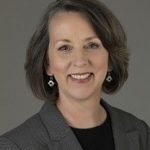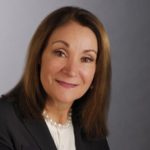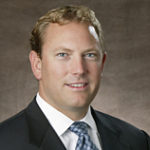
As Sam Willcoxon sees it, success comes from doing the right thing.
Sam Willcoxon is President and Chief Executive Officer of Fidelis SecureCare, a pioneer in the development of community-based Medicare Advantage Special Needs Plans for dual-eligible seniors. Sam has held a variety of senior management roles in Fortune 100 and privately funded healthcare companies, including Baxter International, most notably in its Caremark subsidiary. While with Caremark, he was responsible for the creation and leadership of the Physician Practice Management division, which he led from its inception to over $700 million in revenues within two years. Prior to joining Fidelis, Sam was retained as an independent consultant by several nationally recognized healthcare venture capitalists. Married for nearly 30 years, he has an adult son and daughter, and is a first-time grandfather. His current hobby is spending as much time as possible with his little granddaughter.Interview by Deborah Lazaroff
Fidelis SecureCare is truly a pioneer when it comes to Medicare Advantage Special Needs Plans. Why did Fidelis become involved in senior health care?
Many of us involved in founding the company have had family members that had some aspect of long-term care for the last few years of their lives. Each of us felt that the care they received was less than optimal. Our healthcare system does a good job taking care of acutely ill people and managing disease, but for the chronically ill and frail, our systems are uncoordinated. In the best case, the present system doesn’t allow seniors the choices they would otherwise make, and in the worst case, can actually contribute to their decline. We knew there was a better way. That was a primary motivator. We also recognized a substantial need. The country is aging; over the next 10 years, the over-75 population will experience tremendous growth. We saw an emerging market, and we wanted to bring solutions to it that would dramatically change the quality of healthcare seniors receive. We wanted to create a patientcentric approach to senior healthcare, one that treats these folks with compassion and understanding, and builds a system that honors their needs and their desires and provides them the highest possible quality of medical care. We also knew that Medicare spends approximately 30 – 40 percent of its budget on the last two years of life. We knew that if we could change the quality of care delivered beforehand, we could ultimately reduce those costs and save Medicare and Medicaid a lot of money in the process. So we saw this as a huge opportunity.
When was Fidelis SecureCare founded, and what were the key issues in developing the business?
We began writing the business plan in 2004. The first hurdle was completing the business plan, the second was getting the business plan financed, and the third was selecting the initial markets and finding the physician partners we needed to effectively engage the model we had designed. We selected Texas, specifically the Houston area; North Carolina, predominantly the metropolitan areas around Charlotte and Raleigh-Durham; and Michigan, predominantly Detroit to start. Then it was a question of hiring the team and getting all the fundamentals in place, and in the process learning the 500 lessons that I believe everyone who founds a company learns, including that 90% of what you wrote in your business plan doesn’t work. But success isn’t necessarily a matter of how few mistakes you make, but rather, how you respond to them. You have to determine how to adapt and execute your plan while keeping your principles and values in place.
What were the key issues in developing the SecureCare plans for seniors?
Initially we began with long-term care. The average person we enrolled was an 83 – 85-year-old widowed female, often in a nursing home or assisted living facility. When she became a member, she was typically on 10 – 15-plus medications and had been hospitalized one to two times in the previous 12 months. Her care had been very uncoordinated; she might have seen her primary care physician once every six weeks to two months. A nursing home is a very, very tough place to get the kind of quality medical care that someone like this truly needs. The issues involved finding the right kind of partners to integrate into the business plan we had created to deliver the quality of care that we believed was important for these individuals.
Quality care is often based on continuity of care.
Continuity of care is important, and that requires effective care coordination. In long-term care, what it really boiled down to was that very often there was no single person in charge. There might have been a primary care physician, but these patients get sent off to the hospital so frequently and examined by so many other physicians that very often there was nobody focused on coordinating that patient’s overall care. So what we did was partner economically with a series of nursing facilities in our target markets, and also partnered with the physicians involved with those facilities to develop strategies and care tactics that would allow us to ensure that everyone we enrolled received the care we wanted to deliver. We quickly learned that the physician practices had the same care approach and the same goals that we wanted to develop, so we positioned them as the primary care physician base. When Fidelis did the initial rollout of the plan, we worked closely with the physician practices to coordinate all the aspects of care to create a superior care experience. The concept of the care model was very frequent observation and physical exams by either a primary care team or a Fidelis-employed Nurse Practitioner or nursing team. As I mentioned, normally a person in this age category sees a primary care physician every six weeks to two months. In our Fidelis plans, members see a provider at least once a week to observe them, to look for very subtle changes in health status. We have other resources within Fidelis that may see them as frequently as once a day. If we see changes in a member’s health, we treat them immediately, at the bedside. If done well—and Fidelis does it very well—this frequency of observation and immediate treatment prevents a lot of unnecessary hospitalizations. This is very important, because hospitalizations can result in unfortunate outcomes for people in this age category. Even at the best facilities there is the risk of infection, and the negative effects of stressful environments and inactivity that typically accompany a hospital stay are well documented. A patient might go in on five to six or maybe 10 meds and come out on 15, all because nobody has properly coordinated their care. We prevent a lot of those hospitalizations. In general, the average person we care for doesn’t get hospitalized unless they absolutely need it.
Unless it’s a genuine emergency.
Exactly. So those extraneous, costly and dangerous hospitalizations are eliminated. And by having our members see a doctor at least once a week, our coordinated care generally takes that member’s 15 medications down to about six in 30 days. But the most important aspect of these plans has to do with the fact that the population we care for typically has a death rate of about four percent a week. Fidelis’ SecureCare plans have pretty much cut that in half—our folks have a death rate of about two percent a week. It’s clear that the care we provide is profoundly better, and that means better outcomes, including clinical, patient satisfaction, and financial.
Would you say that this coordinated care is what makes Fidelis SecureCare’s plans different from other Medicare Advantage Special Needs plans on the market?
I would say there are a couple of factors. First, there aren’t many special needs plans in the marketplace, specifically because caring for these individuals is very complicated, and for most Medicare supplemental plans it isn’t profitable, because they don’t know how to properly manage it. Second, what sets Fidelis apart is that we employ our own physicians, nurses and practitioners. We are experts in geriatric medicine, and we use our health plans to finance the care of those individuals. What we do in employing our own clinicians makes this a very good business to be in economically, and it also allows us to do good on the care side. We’ve worked very hard to deliver effective care right at the bedside on a very frequent basis, and I believe we’ve been quite successful in doing so. Finally, as we looked at our successes in long-term care, we began to develop in a new direction focused on providing the sort of comprehensive care that would help keep seniors out of nursing homes and assisted living facilities in the first place, by offering community-based healthcare plans. We’ve implemented such a program successfully up in Seattle and we’re now implementing it in Detroit. And if you look at us over the next couple of years, what you’re going to see is a company very focused on community-based delivery of services as opposed to institutional facilities.
When you say community-based care, are you talking about working with the clinics and physicians themselves?
No, we are the health plan. Unlike most health plans, we employ our own practitioners. So when I say community-based care, what I mean is putting clinics into low-income, urban environments and enrolling people into our health plan and providing our own primary care to the individuals we enroll, through that clinic infrastructure. The people we take care of are defined as dual eligibles. They’re people who receive both Medicare and Medicaid, and when we enroll them into our Medicare health plan, we basically provide all of their primary care. If you were to look at these folks in general, you’re looking at people who are low-income, with multiple chronic diseases, and very poor access to high quality healthcare. Detroit is a primary example. It’s very characteristic of such lowincome, urban-based environments. So what we’re really doing is bringing what is called “concierge medicine”—i.e., high quality healthcare to very low-income people.
And how did that develop?
Our Beta site was up in Seattle, and we did it in part by working with a local union. We enrolled into our health plan patients who were qualified for services and were cared for by members of that union. It has worked out very well. We have about 800 people enrolled up there now, and if you were to look at—I know this gets far more detailed than you need to know—but if you look at our clinical outcomes with those individuals—and all of those individuals are dual-eligibles— they are among the best clinical outcomes in the country.
So how did the evolution take place from long-term care to the communitybased model?
As I mentioned earlier, the average person we enrolled and managed in our longterm care plan was an 83 – 85-year-old widowed female, with around three to five chronic conditions and three to four ADL issues, which stands for Activities of Daily Living. We became very good at providing such care, but we realized that there was a population of seniors still living in the community, not yet in long-tem care but probably two to three years away from it. So we decided to take a look at our long-term care model, and we thought very carefully about how we could apply that model to a community-based population. Our basic idea is that if we can get our care model into the community and manage the healthcare for these seniors before they end up in a nursing home, we could very likely prevent them from having to go into a nursing home altogether.
So the goal is to keep their health at a level where they’re able to remain independent.
Exactly—so they can age in place. Now when you think about that idea of aging in place, first, most people would prefer to spend the rest of their life at home versus in a facility. Second, we anticipated it would save Medicaid and Medicare a ton of money. Finally, it’s obviously very satisfying for us.
So what you’re trying to do is actually prevent the need for long-term care.
Now there will always be a need for long-term care, because there are people that require it due to their clinical needs and medical issues. But there are many, many people today that end up in long-term care through no choice of their own. What we’re trying to do is give them a very safe clinical alternative to going into longterm care, and we define that as wrapping clinical services around them that allow them to safely age in place at home. This evolution has actually been a conscious effort over the last two or three years. We began conversations about how to focus on the community and adapt our care model to fit that market almost three years ago. As part of that discussion, we began a series of discussions with people in the marketplace about what they were doing and how they approached duals healthcare management. We had as many of these conversations as we could, and one of these was with a very large union called SEIU, that represents healthcare workers across the country. We then spent a lot of time learning about and understanding the type of home-based care their union members provide every day for home-based duals, and we thought very carefully about how we could partner with them to match our clinical model and training capabilities to their homecare workers for a very safe model in the home. And that’s in part what we’ve done in Seattle.
So Fidelis is meeting head-on the need for long-term healthcare by working to reduce that need through better care beforehand.
That’s part of the story. Our primary focus is on how to best treat our most fragile seniors. Many of those people are urban-based, and when you go out in the field to spend time with these people in their homes and talk with them and their families, what you consistently hear is that these seniors would really like to be able to stay at home. They don’t want to go to nursing facilities for the last couple of years of their lives. So the real question is how do we set up a system that will allow them to very safely age in place at home? One that not only meets their needs but also those of their family members—who would also much rather see their mother or father or aunt or uncle or grandparent stay at home? Our mission is to wrap a model around them that allows them to very safely age in place at home, in a way that not only meets their needs but also those of their families. Our healthcare plans successfully address these issues as well as longer term care costs in the USA as a whole, because frankly, the more we can do to safely age people in place at home, the better it obviously is for Medicare and Medicaid in the long run.
Exactly. Because there is less need to have people institutionalized simply because they’re dual eligibles, and—
—and simply because they have no other options. We offer a very tangible option.
Yes, and it’s an excellent option as well. In some ways it’s related to how hospice care has developed over the last half-century.
You know, that’s a very good analogy. The hospice industry developed as a way to very effectively and very compassionately treat the last few months of life for many of these folks. And what we’re really doing is finding a way to allow these people to safely remain at home, extending the time they have with their families. We do so by providing comprehensive clinical services for them, and social services for their families, early enough in the process that we can very safely age them in place. As I’ve mentioned, in our long-term care plan, the average person we enrolled in nursing homes was around 83 – 85 years old; the average person we’re enrolling in our community-based plans today are in their early seventies. The idea is that if we start managing them well today, and keep them at home for those last five to 15 years of their lives, it’s not only much more cost effective, but also offers a higher quality of care than the available alternatives. It’s just a very good system overall.
Definitely. It’s an excellent system. So have you seen a positive response to this change in direction?
Oh, it’s huge. We’ve got Seattle growing very aggressively now, we’re opening the same model in metropolitan, urban Detroit, and we believe there’s a huge opportunity for community-based senior care. Now if you look at Detroit 10 years ago, there were probably 1.3 million people there. Today there are about 700,000. Many of those left behind are people who simply can’t leave, and many of them are seniors. If you look at the status of clinical care in urban Detroit, about 50% of the region is classified as a federally designated medically underserved area. As the population migrated out, so did a lot of the providers. So what you’re left with are people today being cared for predominantly in hospital emergency rooms. There are some excellent hospitals in Detroit, but they’re overcrowded with these folks who have no access to coordinated primary care. We’ve seen huge enthusiasm for our Detroit clinic because we are bringing very high quality practitioners into an area previously abandoned by such practitioners, and we’re providing superb healthcare.
That’s great. I can see how your community-based healthcare model would be very valuable to the dual-eligibles in Detroit, because that is a very depressed area. Will Fidelis pursue more areas that are income-depressed?
Yes. In building out this care-centered model, Fidelis will be focusing predominantly on urban areas, particularly income-depressed ones.
Have you seen changes in the marketplace in terms of this kind of Medicare program?
Yes. We’re seeing a lot of interest in the dual-eligibles today, both on the insurance side and, to some extent, on the provider side. But I think people are still grappling with defining the appropriate model to put in place to care for these individuals. So I would say that today there’s a high level of interest and a fair amount of confusion about the best model to offer to these folks.
What impact has the Affordable Care Act had or will have on Fidelis’ SecureCare plans?
The Affordable Care Act takes effect in 2014 for us, and there will be some regulatory changes that we’ll need to manage like every other insurer, but we don’t see it as having a negative impact at all. From our perspective, the Act will increase access to care for an awful lot of people, and that’s a good thing. There will be some regulatory burden that we’ll have to take on as part of the stipulations within the act, but nothing will fundamentally change how we approach senior healthcare or how we operate our business.
That’s wonderful. Now how have the physicians and medical groups responded to the clinical care models that you’ve opened up in Detroit and Seattle?
Well, it’s been interesting. As people began to focus on dual-eligibles, and as different insurers and providers began grappling with how to manage the care for these seniors, we’ve had numerous partnership opportunities appear, both on the insurance side and the provider side.
That’s fantastic—so other insurers as well as providers have actually been approaching you.
That’s exactly right. There are a couple of other Medicare healthcare plans that are asking if there is a way to partner with us in the care of these frail duals, because they see the clinical results we produce. We’ve had providers approach us as well; hospitals and individual physicians have approached us about being part of their healthcare continuum, to help them manage these folks with higher quality outcomes than what they’re currently experiencing.
I would imagine the response of the physicians and facilities with which you’re partnered has been very positive. How about the members? How do they feel about SecureCare?
Oh, I wish I could give you some members to talk to! First, what we do in caring for people is so profoundly different from everything else in the marketplace that we don’t lose Fidelis enrollees. Most health plans turn 20 – 30% of their base every year, but we don’t. Second—and this is a critical point—we integrate the family into the care plans we develop. When the member has their initial physician evaluation, we involve the family in the plan of care going forward, because family members are often integral players in the observation and care of the individual, especially if they’re at home. They function as additional eyes and ears for us. So we spend a lot of time integrating family in what we do. For example, in Seattle we have our own social workers, because we understand that caring for folks in this age strata can be very, very stressful. Our goal in employing these social workers is to understand the needs of both the people we care for and their family members. In integrating all of this together, we’ve found that it’s much easier to provide the quality of care we want to provide, because everybody surrounding that frail elder is involved. Third—and I know this is an over-used term—we find that in partnering and working so intimately together in ensuring the very best care for them, our members become like family to us. And when that happens, we get profoundly better clinical results. We’re more effective care providers, and I believe the people we care for would tell you that this is a healthcare experience like no other they’ve ever had.
It’s a healthcare model with far more personal investment for every participant—for you, for the clinicians, and for the members. It’s a far more personalized level of involvement.
And for the members’ families as well, because we’re able to help them, too. Very often what you find is that a family member—typically a daughter, incidentally—coordinates all aspects of care for the frail elder. She’s the person making all the medical appointments, arranging the transportation, picking up prescriptions—she’s coordinating all of it. What we do is take that burden away; we do everything. We take responsibility for all of it, because our goal is to take away as much of the burden as we possibly can. This also allows us to get very intimately involved with all of the practitioners a person sees, so that we can most effectively coordinate their care. It’s not only more efficient for us, it’s also a tremendous relief for the family.
It’s definitely a “win-win” situation.
You bet.
What is Fidelis SecureCare’s guiding philosophy?
First, that every single member we enroll deserves the best care we can deliver to them; that we must treat each of them as we would a member of our families. That’s the level of commitment we bring to them. Second, open and honest communication is essential within our team; third, that there must be integrity in everything we do; fourth, that each and every one of us is accountable not only for our individual responsibilities but also for each other as teammates; and five, that leadership counts. And I differentiate between leadership and management: everyone has to be a good manager, but the key people need to be good leaders, too. They have to be willing to be accountable, to take risks, and to very clearly communicate the vision and passion of what we’re doing to all of the stakeholders. Clear communication is essential; it’s the cornerstone of everything we do.
When and how did you first meet Bob Mobley?
I met Bob back in the late 1980s. I was a young manager at Baxter in those days, and Bob was a key leadership resource at Baxter. I had the good fortune of being selected to work with him. Bob had a very critical role in shaping a lot of us that were new to what was, at that time, a new division emerging within Baxter. For me personally, Bob was integral in helping me define what it meant to be a leader not only within Baxter, but in life in general. He was instrumental in helping me understand how to communicate effectively, how to take my ideas and effectively sell them, and how to develop trust and integrity in the team around me. All these years later Bob is now working with me and my team at Fidelis. He’s very, very good and insightful; he always gets to know each individual personally, and he’s done so with my team members.
Integrity has always been a key issue for Bob, and it’s a key part of Fidelis’ guiding philosophy. How do you believe integrity has an impact on the services provided by Fidelis SecureCare?
First of all, we have a small number of people within the Senior Team that are responsible for developing what we believe will be a world-class company over the next two years. We’re growing quickly, and to be able to look at each other every day and know that there is nothing but total trust and honesty between all of us is absolutely essential. So when I think of the Senior Team, those values of integrity and honest and open communication and all the behaviors associated with them are absolutely essential. They’re essential not only within the Senior Team, but also as we hire additional players and managers. We need to take our culture and spread it throughout the organization, ensuring that values like integrity and open and honest communication aren’t simply concepts, but also behaviors that are ingrained within each of us. Second, it is absolutely important to make sure that we deal with every person in our care with an equally strong degree of integrity. The medical issues our members face can be extremely stressful for them and their families. So they have to believe that we are a company of integrity, and that we are doing the right thing every single time we interact with them. The way I see it, when people put a family member into a Fidelis plan, they trust their care to us, and we must honor that trust. And this is important from the larger aspects of the care that we coordinate and manage all the way down to the simple communications we have with the front desk manager in a clinic or the care manager who’s working with the family. They have to believe that we always have their best interests in mind, and that they’ll receive nothing less than our very best efforts and our complete honesty in meeting their needs.
One of the chief goals of Bob’s work today—which corresponds very well with your goals for Fidelis SecureCare—is to demonstrate that success is possible with integrity. It may sound odd to voice it that way, but after all the Wall Street scandals, the current public perception of the business world is that it cannot be trusted—that today’s industries and corporations lack integrity. How important is it to you to get across the message that integrity can bring success?
You know, you’re exactly right. I’m sure most organizations do a good job in general, but some haven’t done a very good job when it comes to integrity. And when it gets right down to it, nothing will kill a company faster than a lack of integrity. And never is this truer than when a company is pursuing a new and different paradigm. We’re currently a small company doing just that. And when you’re a small company caring for people, mistakes can be catastrophic. Not only because it would break our hearts if we ever actually harmed anyone in our care, but the fact that these are small communities. If we don’t deal with every single one of our members with that firm, fundamental foundation of integrity and compassion, and someone becomes dissatisfied and leaves us, it can spread like wildfire through these very small senior communities. We have to do everything exactly the right way, every single time we interact with our members. We believe that every single interaction is of utmost importance and that every member must be served with integrity. The way we see it, by doing good we will do well. If every single person in our company approaches each individual interaction with integrity and compassion, Fidelis will grow and thrive far beyond anything advertising or marketing can do.
As your company grows, the challenge will be to ensure that those integrityrelated values are extended and maintained throughout the organization.
That’s an ongoing challenge, and this is where Bob is of great help. Bob works very closely with the Senior Team here. He works to develop each person’s communication skills, and on identifying and helping us to define our leadership values and the behaviors that come with them. But Bob is also teaching our team how to hire with integrity, so that the people we identify and bring on board are a very close cultural match to the values and behaviors we espouse at the senior levels of the company. We have to do this with each layer of management we add to the company. Most companies don’t generally consider the values and cultural fit of the people they add to their staff. They look at a certain set of skills, they see a nice resume, and they’ll hire somebody for their past achievements who may not have a foundation of values and behaviors important to that company. So what you find is a disconnect down the road. From our perspective, people’s past accomplishments are important, but we’ve also got to be sold that they have the same level of integrity; that the values they live by are the same as the ones we live by.
There are a lot of management consultants that offer team coaching. What do you believe is truly unique about Bob Mobley? What sets his coaching apart from all the rest?
First, Bob likes to help companies build their cultures and values, and to be an ongoing part of their growth and development over time. My perception is that he doesn’t work with everyone; Bob is very values-based, and first and foremost, he makes sure that any company he works with shares his values. Second, I’ve watched Bob work with my team. He really takes the time to get to know each of them personally. Bob only needs to spend a few hours with someone to become incredibly insightful about what makes that person tick. And it’s that insight that allows him to truly invest himself in that person to help him or her become a world-class leader. Third, I’ve seen a lot of consultants that sugarcoat things. Bob, on the other hand, is very straightforward and brutally honest. I imagine he would prefer not to work with someone who didn’t appreciate his direct and forthright style, since honesty is an extremely important value to him. Fourth, Bob spends a great deal of time examining values and behaviors. He believes communication is the cornerstone of this developmental process, and he’s right. Everything we do is communication-based, and Bob is very good at helping people hone their communication skills. But he also uses communication to introduce the ideas that guide values and behaviors. He works closely with our team to ensure that we’re identifying those values and sticking to them, and that we’re exemplifying the behaviors that come with those values in a way that is consistent and integrity-based. To summarize, what sets Bob apart is that he personally invests himself in the people with whom he works. He cares deeply about them, and works very hard and very diligently to bring the best out of them. Bob is so personally invested in the clients he takes on that he really is an extended Senior Team member of Fidelis SecureCare. Deborah, when it gets right down to it, at the end of the day I know I can pick up the phone and call Bob and he’d be on the first flight tomorrow if I needed him.
You’re not the first person I’ve interviewed who has made such a comment. The key motivating factor for Bob—and it’s rooted in his own personal integrity—is that he believes it is very important for him to genuinely help the people with whom he works. That’s why he becomes so profoundly personally invested in each person. Bob believes that if you base what you do on doing good—on helping people, on giving back—that good will come back to you.
You bet. I couldn’t agree with that more.
He truly believes that authentic success comes from doing the right thing.
And incidentally, that’s a rare voice today. You were commenting a while back on the reputation of Wall Street and the public perception that businesses don’t do the right thing. Bob is a very rare voice conveying the message that one should always do the right thing.
And it’s a very important message today. If more businesses follow that voice and exemplify integrity through their actions, they will see success come to them. That’s what Bob is truly communicating.
I agree. I think what a lot of companies miss today is that doing the right thing is truly elemental. In the push to focus on short-term results, the push to flip companies—the kind of things you see every day out there—that elemental focus is often lost. The way we at Fidelis see it, we can build something tremendous by delivering a level of service and care to our members that reflects how elemental that integrity is to us. Bob has been an integral part of this goal for us. Doing the right thing will produce the results we’re aiming for. And I would hang my hat any day of the week on dealing with everybody with compassion and integrity versus any other strategy or tactic in the world. If you live that way every single day, you’ll grow, you’ll thrive, and you’ll become successful.






